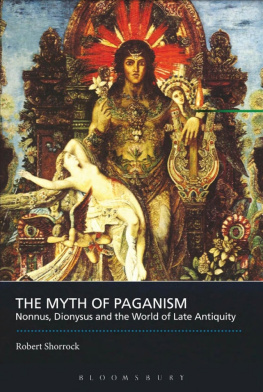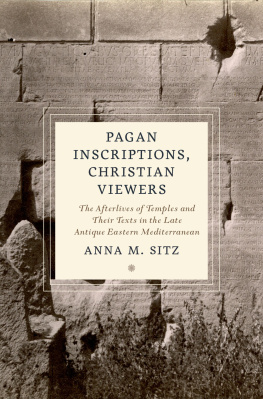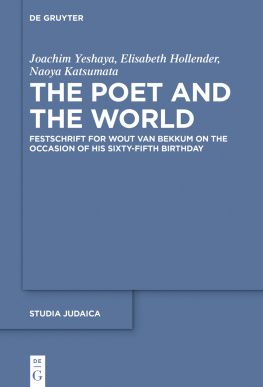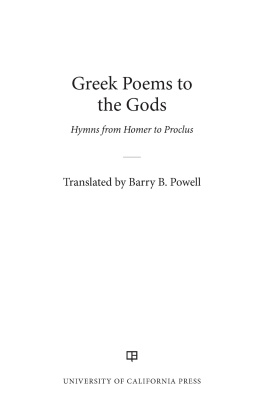| The Myth of Paganism: Nonnus, Dionysus and the World of Late Antiquity |
| Robert Shorrock |
| A&C Black (2008) |
|
| Tags: | Esoteric, History, Non-Fiction, Philosophy, Spirituality |
| Esotericttt Historyttt Non-Fictionttt Philosophyttt Spiritualityttt |
This challenging series considers Greek and Roman literature primarily in relation to genre and theme. It also aims to place writer and original addressee in their social context. The series will appeal to both scholar and student, and to anyone interested in our classical inheritance. With the adoption of Christianity as the official religion of the Roman world in the fourth century AD, the role of the poet underwent a radical transformation. In place of the traditional poet of the Muses, there emerged a new figure, claiming inspiration and authority from Christ. The poet of Christ soon came to eclipse the poet of the Muses, and in doing so established a conceptual framework that still drives modern approaches to the period: Christian poetry is taken 'seriously' as making a relevant and valuable contribution to our understanding of the late antique world; by contrast 'pagan' or 'secular' poetry is largely ignored, as though it were devoid of meaning. "The Myth of Paganism" seeks to re-evaluate the role of 'pagan' poetry in late antiquity.Instead of maintaining a strict dichotomy between 'pagan' and 'Christian', it presents a broader definition of these poets as active participants and collaborators in the creation of late antique culture. Attention focuses on an exploration of the contemporary resonance of Nonnus' Dionysiaca - traditionally regarded as a 'pagan' epic in terms of its theme and content, yet in all probability the work of a 'Christian' poet responsible for a Homeric-style retelling of St John's Gospel. **
Editors Foreword
The aim of this series is to consider Greek and Roman literature primarily in relation to genre and theme. Its authors hope to break new ground in doing so but with no intention of dismissing current interpretation where this is sound; they will be more concerned to engage closely with text, subtext and context. The series therefore adopts a homologous approach in looking at classical writers, one of whose major achievements was the fashioning of distinct modes of thought and utterance in poetry and prose. This led them to create a number of literary genres evolving their own particular forms, conventions and rules genres which live on today in contemporary culture.
Although studied within a literary tradition, these writers are also considered within their social and historical context, and the themes they explore are often both highly specific to that context and yet universal and everlasting. The ideas they conceive and formulate and the issues they debate find expression in a particular language, Latin or Greek, and belong to their particular era in the classical past. But they are also fully translatable into a form that is accessible as well as intelligible to those living in later centuries, in their own vernacular. Hence all quoted passages are rendered into clear, modern English.
These are books, then, which are equally for readers with or without knowledge of the Greek and Latin languages and with or without an acquaintance with the ci vili sation of the ancient world. They have plenty to offer the classical scholar, and are ideally suited to students reading for a degree in classical subjects. Yet they will interest too those studying European and contemporary literature, history and culture who wish to discover the roots and springs of our classical inheritance.
The series owes a special indebtedness and thanks to Pat Easterling, who from the start was a constant source of advice and encouragement. Others whose help has been invaluable are Robin Osborne who, if ever we were at a loss to think of an author for a particular topic, almost always came up with a suitable name or two and was never stinting of his time or opinion, and Tony Woodman, now at Virginia. The unfailing assistance of the late John W. Roberts, editor of the Oxford Dictionary of the Classical World, is also gratefully acknowledged. Deborah Blake, Duckworths indefatigable Editorial Director, has throughout offered full support, boundless enthusiasm and wise advice.
Finally, I pay tribute to the inspirational genius which Michael Gun-ningham, fons et origo of the series and an editor of consummate skill and phenomenal energy, brought to the enterprise. His imprint is everywhere: sine quo, non.
David Taylor
Preface
It has taken a long time for this project to see the light of day. I had high hopes of finishing this book before the birth of my first child. I now have three children and that first child is already seven years old. The Myth of Paganism has indeed been dragging on for so long that at times even I began to think that it was itself a myth. That I should have finished it at all is miraculous, but if anyone is to blame then Vedia Izzet must stand at the top of the list. To Deborah Blake I owe a great debt of gratitude for putting up with my regular prevarications and excuses with saintlike patience and never giving up on the book (and for her help with the cover). I would like to thank Michael Gunningham as the original commissioning editor for the series and the current series editor David Taylor for his helpful comments and support. A number of friends and colleagues have commented on various parts of the book, shared articles, ideas and bibliographies. I am particularly grateful to Gianfranco Agosti, Fotini Hadjit-tofi, Jason Konig, Konstantinos Spanoudakis and Mary Whitby, and to the participants of a stimulating conference on Later Greek Literature organized by Caterina Karvounis and Richard Hunter at the University of Cambridge back in 2006.
I would like to thank Eton College for the sabbatical leave that has at last given me the chance to put an end to The Myth of Paganism and to apologise in advance to my parents who think that the book they ordered on Amazon several years ago is going to be a 'good read'.
R.E.C.S.
31 May 2010
Cyprus
Introduction: The Myth of Paganism
It may be admitted that the culture of the fifth century is not a fascinating study. The idolatry of mere literary form combined with the poverty of ideas, the enthusiastic worship of great models without a breath of the spirit which gave them their enduring charm, immense literary ambition without the power to create a single work of real artistic excellence - this is not a subject which promises much interest.
Over the last 40 years or so our view of the critical landscape of late antiquity has been subject to a radical transformation. In the face of Edward Gibbon's long-enduring notion of decline and fall, the work of scholars such as Peter Brown (on the body and society), Averil Cameron (on the formation of Christian discourse) and Jas Eisner (on material culture), has begun to revolutionise our understanding of this most complex of periods. Late antiquity has now begun to emerge as an arena of dynamic, self-confident and highly sophisticated interaction. In the area of literary culture, however, notions of decline and decay are still flourishing. Though of course we have come a long way from 1905 and the words of Samuel Dill quoted above, it was still possible to read as recently as 1998 that we are dealing with an epoch in whichpeople did not express themselves chiefly through literature, which is therefore not outstanding. As this book will argue, nothing could be further from the truth: the literature of the period had a central role in helping to define and communicate what it meant to live in a post-Classical world.






